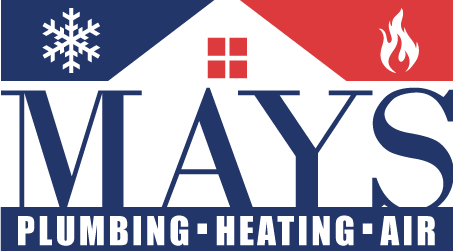What Are the Must-Know Tips for First-Time Roofers?
The Importance of Safety First
When it comes to roofing, safety is paramount. Before starting any job, first-time roofers must equip themselves with appropriate safety gear. This includes a hard hat, safety goggles, gloves, and non-slip footwear. Furthermore, harnesses are essential for working at heights. Always adhere to safety regulations and protocols to minimize risks.
Understand Your Tools and Materials
Familiarizing yourself with the tools and materials is crucial. Common tools include:
- Caulking guns
- Roofing hammers
- Tape measures
- Utility knives
- Power drills
Each tool serves a specific purpose and knowing how to use them can significantly enhance your efficiency. Different roofing materials also vary in application method. Whether shingles, metal panels, or tiles, understanding each material’s characteristics is essential for a successful installation.
Do Your Homework on Roof Types
It’s vital to distinguish between various roofing systems. Each type of roof has unique characteristics and installation methods. Some common types include:
- Asphalt Shingles
- Metal Roofing
- Slate Roofing
- Tile Roofing
- Flat Roofing Systems
Recognizing the specific requirements for each type ensures that you apply the correct techniques and avoid costly mistakes.
Learn to Read Blueprints
Blueprints are the backbone of roofing projects. Being able to interpret these documents accurately can save time and make the margin for error smaller. Key elements include:
- Measurements
- Slopes
- Ventilation systems
- Drainage
Understanding these components will enable you to plan your work effectively and deliver quality results.
Master the Art of Inspection
Before starting any roofing job, conduct a thorough inspection of the site. Look for:
- Existing roof issues
- Water damage
- Structural integrity
- Hazards
A comprehensive assessment allows you to plan the project more effectively and address potential issues before they escalate.
Tackle Roof Ventilation
Proper ventilation is often overlooked but is essential for maintaining the longevity of a roof. Adequate ventilation prevents heat buildup, reduces moisture accumulation, and avoids costly problems down the road. Research different ventilation systems, including:
- Ridge vents
- Gable vents
- Chimney vents
- Intake vents
Selecting the right system ensures a comfortable home and enhances the roof’s lifespan.
Follow Best Practices for Installation
When installing roofing materials, several best practices should be adhered to:
- Ensure each layer overlaps appropriately to prevent water intrusion.
- Use adequate fasteners; selecting the right size and type is crucial.
- Follow manufacturer specifications closely. These guidelines are designed to maximize the roof’s effectiveness and warranty.
- Always work in a methodical manner to ensure quality and dependability.
Correctly applying these principles can lead to a successful roofing project with fewer problems later on.
Know the Legal and Regulatory Aspects
Understanding local building codes and regulations is vital for any first-time roofer. Each municipality has specific requirements that affect roofing projects. This may include:
- Building permits
- Inspections
- Zoning laws
Failing to adhere to these regulations can result in penalties and may even require you to remove and redo work. Become familiar with these laws for a smoother experience.
Put Your Customer Service Skills to Use
The client-roofer relationship is essential. Always communicate clearly with clients to set expectations. Important communication points include:
- Project timelines
- Costs and materials
- Potential delays due to weather
- Change orders
A transparent approach fosters trust and improves customer satisfaction, leading to potential referrals and repeat business.
Document Your Work
Documentation is an often underestimated aspect of roofing. Keeping meticulous records serves several purposes:
- Helps follow the project timeline
- Assists in warranties
- Provides evidence of completed work
Using photographs and detailed notes can protect you and your client later if any disputes arise.
Stay Educated and Seek Feedback
The roofing industry is continuously evolving. Techniques, materials, and safety protocols frequently change. Therefore, continual education is necessary. Consider:
- Attending workshops
- Taking online courses
- Joining trade associations
Additionally, seeking feedback from clients and experienced colleagues can offer valuable insights and improve your skill set.
Network with Other Professionals
Building a positive network is beneficial. Relationships with manufacturers, distributors, and other roofing professionals can present different opportunities. Networking can also provide access to:
- Exclusive discounts
- Product recommendations
- Best practices
Leveraging these connections can enhance your business and improve your work quality.
Maintain a Clean Work Environment
A tidy work environment enhances safety and efficiency. Follow basic cleanup procedures during and after each job. Tidiness also reflects professionalism, building client trust. Consistently removing debris can prevent accidents and foster a productive setting.
Conclude with Quality Assurance
Quality assurance should not end with the installation. Follow up with clients to ensure satisfaction and address any concerns. An effective follow-up can indicate a commitment to quality and service.
Final Thoughts
As a first-time roofer, applying these must-know tips can significantly impact your success. Focus on safety, training, quality installation, and compliance. Each tip builds upon the others to create a comprehensive skill set necessary for any roofing project. Embracing these principles will establish a solid foundation for your roofing career.
Author: STAFF HERE Chapin
CHAPIN STAFF WRITER The CHAPIN STAFF WRITER represents the experienced team at HEREchapin.com, your go-to source for actionable local news and information in Chapin, Lexington County, and beyond. Specializing in "news you can use," we cover essential topics like product reviews for personal and business needs, local business directories, politics, real estate trends, neighborhood insights, and state news affecting the area—with deep expertise drawn from years of dedicated reporting and strong community input, including local press releases and business updates. We deliver top reporting on high-value events such as the Chapin Christmas Parade, Fourth of July Celebration, and the Chapin Fall Festival. Our coverage extends to key organizations like the Chapin Chamber of Commerce and the Lexington School District One, plus leading businesses in retail and recreation that power the local economy such as Lake Murray Tourism and the Chapin Visitor Information. As part of the broader HERE network, including HEREaiken.com, HEREbeaufort.com, HEREchapin.com, HEREcharleston.com, HEREclinton.com, HEREcolumbia.com, HEREgeorgetown.com, HEREgreenwood.com, HEREgreenville.com, HEREhiltonhead.com, HEREirmo.com, HEREmyrtlebeach.com, HEREnewberry.com, HERErockhill.com, HEREspartanburg.com, HEREaustin.com, HEREcollegestation.com, HEREdallas.com, HEREhouston.com, and HEREsanantonio.com, we provide comprehensive, credible insights into South Carolina's dynamic landscape.




 Mays Contracting
Mays Contracting

